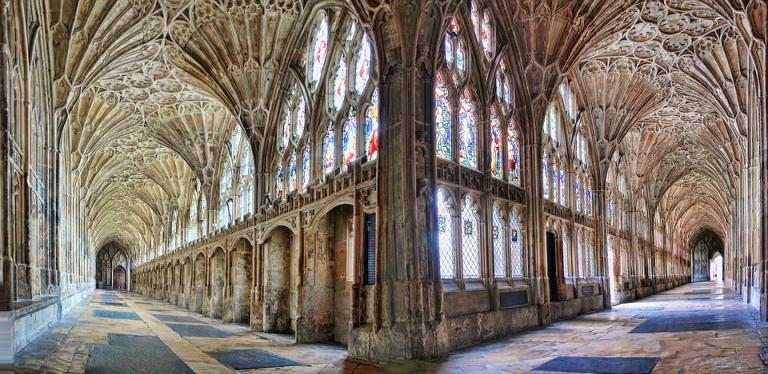by guest writer William M. Shea, PhD
For a big chunk of my life I was a Roman Catholic cleric. I quit in 1980 simply because I couldn’t handle celibacy. I finally, after nineteen years of struggle, decided that as the Scripture has it, “It is not good for the man to be alone.” That truth has increasingly pressed itself upon me during forty years of marriage. I married a really good woman fortunately. This is a marriage made in heaven as far as I am concerned though she has good reason to doubt it. Being a priest was a riveting way of life. Being married is deeply satisfying and hugely expansive, far beyond what I imagined. Both ways of life ripped away at my layers of biases inner storms.
In the decades in the clerical life I never felt at home in rectories or with other priests (not that there weren’t many good moments!) and since I married I haven’t had a day when I didn’t feel at home. Helene is the magnate and I am iron filings. “Being at home” was what I missed most as a priest. We have two sons who never fail to impress me as human beings and now, this very year, we have had two grandsons, Liam and Oscar, who have blown our minds and hearts. God be praised for all that!
Over years “issues” or “questions” arose which I have never escaped, priest or not. I am a religious man whose mind has been pecking at my soul endlessly, wondering why I pray and worship and don’t want to stop. Given this, why in my thirties was I drawn irresistibly to the study of atheists and their mental world? Likewise, why did I in my forties find Protestant Evangelical life, history and faith so intellectually engaging? Why did I get caught up intellectually in the intricacies of knowledge, faith and belief? Why did I rush to questions that cut deeply into my life as a committed Catholic? Now, near the end, I have provisional answers to a couple of them.
First, I knew that God exists even when “empirical evidence” points in the opposite direction, toward atheism, namely pain, violence and death, all of which terrified me in my youth and the first and second of which still do. Given that God exists, a fact that I have known all my life, there remained the question of how I knew that to be so. In addition there is also the question what God is. For me these have been existential and essential questions for much of my adult life. They don’t flood my everyday life but appear whenever I sat down to think. An initial breakthrough occurred when I read Bernard Lonergan’s great book, Insight: A Study of Human Understanding. He kept me busy in my middle years on answering my questions about God.
I settled on answers in this way: I know that God exists because I can’t stop the question and can’t stop praying without becoming less human. My mind and heart reach out to God and won’t stop. I am restless until I rest in God. Also, I don’t know what God is except to say what He is like and what He isn’t like because I simply can’t wrap my mind around God. I even know He isn’t a he, a she or an it. As St. Augustine said in one of his sermons, “If you comprehend it, it isn’t God.” I do know that, given time and energy, I could in principle wrap my mind around anything in the cosmos, but even given time and energy I could not “comprehend” God. There can’t be enough time and energy for that. I know God is not a thing and God is not nothing. What exactly God is I can’t say, and at last I’m not unhappy with this. Note that I’m abstracting from Christian revelation in these philosophical claims and note how close this is to Eastern Orthodox Negative Theology.
Secondly, from my teenage years I loved the church and it has been a fascinating mystery to me. Literally the term ecclesia means “an assembly of the people,” in this case “the pilgrim people who call upon the Name.” In practice, as Jesus pronounced, “Wherever two or three are assembled in my name there I am in the midst of them.” The church is also all those who assemble in the Name wherever and whenever they are. I worried about this when I started teaching Evangelical students at the University of South Florida. Up till that point all I knew was that Jimmy Carter and Roslyn were two of whatever Evangelicals are and that 1976 was the “Year of Evangelicals” according to Time. Starting in 1980 I began to ask myself: Can they be full Christians without pope and bishops, without being Roman Catholic, just the sort of question a monochromatic Catholic like me would ask. In the course of twenty-eight years of thinking, reading, writing and talking, I reached a decision which put me at odds with The Magisterium and likely with serious ecclesiologists. I’ve concluded that one can be a full Christian with or without bishops, popes and priests, and that’s OK. It’s different, it may appear peculiar to an RC but it’s OK!
Implication: I don’t think that Christians are bound to a universal form of governance or worship or practice. I’m OK with Roman and episcopal leadership, but I think those very leaders have made much too much of their office in sacral and ecclesial terms. I think they have made themselves “sacred” and I fully understand why the Reformers had enough of it. At this point in my life I am so embedded in the community ethos and leadership style of Roman Catholicism that I wouldn’t go searching for another. That you don’t have to be Roman Catholic to belong to the Catholic Assembly is what Evangelicals have taught me. They are as Catholic as the pope is. The church is already one even if bickering interminably.
“What evil lurks in the hearts of men”
Finally, I have long and intensely wondered about the relationship between the evils in history and the storms in my own soul. I recoil from Hitler, Mussolini, Stalin, Mao, Pol Pot et al. with all the political energy I can summon. But are they reflections of the storms of my own psychic and emotional life? Are there genies of evil even in the geniuses of good? Remember please that the Nazi leaders with the exception of Goering were Roman Catholics! Are they one of us, or are we one with them? I want to say no. I want to say there are good people and I am among them. Could it be, in some unfathomable way, that the same evil of soul threatens me?
Hitler spoke to but also for the “German soul,” and worse yet, for the human soul, as well as to and for the SS men who counted out the gold teeth of the millions and to my own soul. He did, along with the other mass murders, reveal actual and potential evils that spring from human beings and perhaps even from the cosmos itself — and if so, what again is God? What is Satan? I was as a child instructed weekly by The Shadow: “Who knows what evil lurks in the hearts of men?” Why would God, whom I don’t understand, create a history in which the holocaust is possible, even likely? I don’t understand this at all. There has been no settlement on this question. There had better be but there isn’t yet.
image credit: gloucester-2391516_960_720.jpg













